
If you’ve ever found yourself lost in the numerous values of your health screening results, wondering what it all means, get ready for a journey where we break down those digits into clear, easy-to-understand numbers. No more scratching your head or feeling like you need a medical degree to decipher the code. Think of this guide as your trusty GPS, helping you understand the numbers and markers that tell the story of your health. So, let us dive in – we have compiled a list of basic health screening tests that you have likely had done. Ready for clarity? Here we go!
Body Mass Index (BMI)
BMI is a measurement that checks if your weight is just right for your height. You can find out what the BMI values on your results mean through the table below:
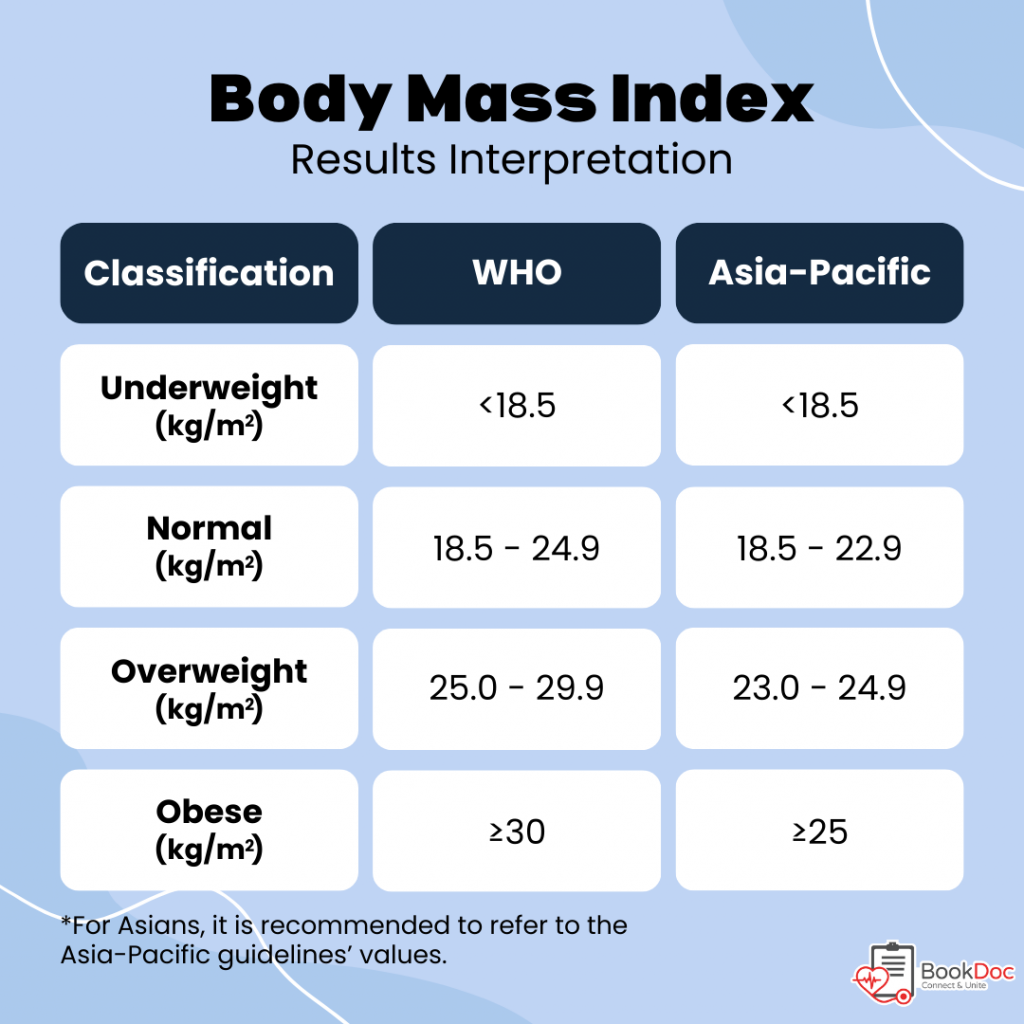
Blood Pressure
A blood pressure test assesses the pressure in your arteries when your heart beats, helping to check if your blood pressure is in the normal range.
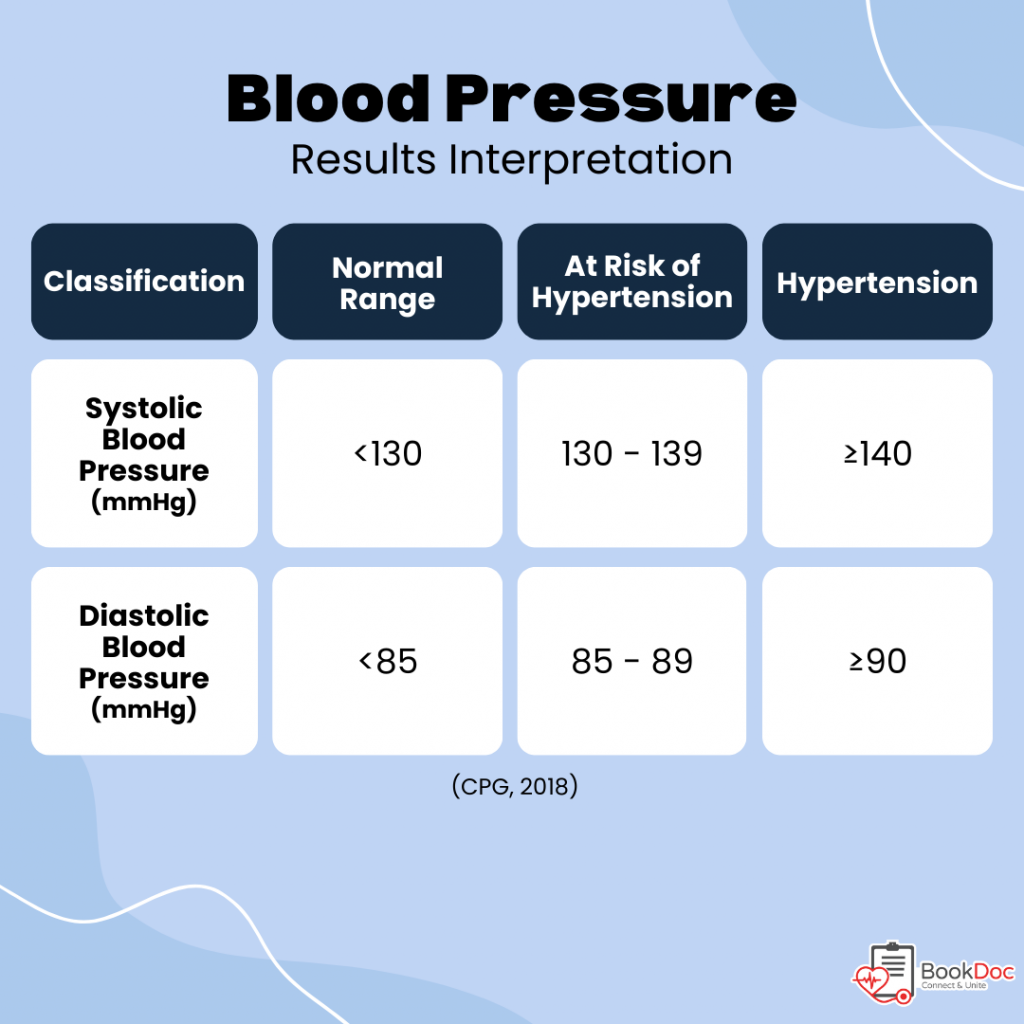
When either systolic blood pressure or diastolic blood pressure values cross into the ‘hypertension’ category, it means that the individual has high blood pressure. For example, if the reading is 140/80 mmHg or 120/90 mmHg, the individual is considered to have high blood pressure. A healthcare professional, typically a doctor, will conduct a thorough assessment to make the final diagnosis and recommend an appropriate course of action.
Blood Glucose Test
A blood glucose test measures the amount of sugar in your blood, screening for diabetes and usually includes random blood glucose, fasting blood glucose, and HbA1c. HbA1c, also known as glycated haemoglobin, gives a picture of your average sugar levels over the past two to three months. It’s like a long-term report card for your blood sugar, helping to understand how well diabetes is managed.
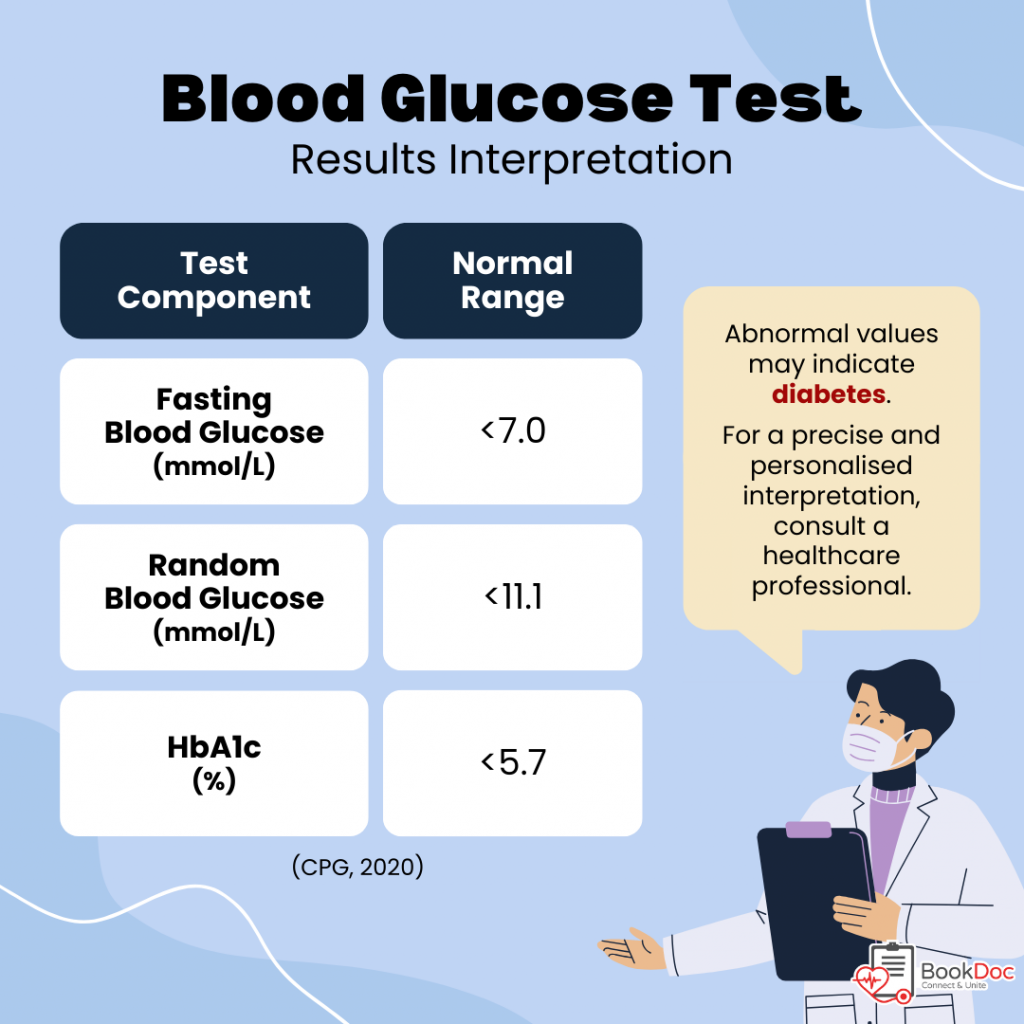
Lipid Profile
A lipid profile measures the amount of fats and cholesterol present in your blood, looking at total cholesterol, HDL cholesterol, LDL cholesterol, and triglycerides.
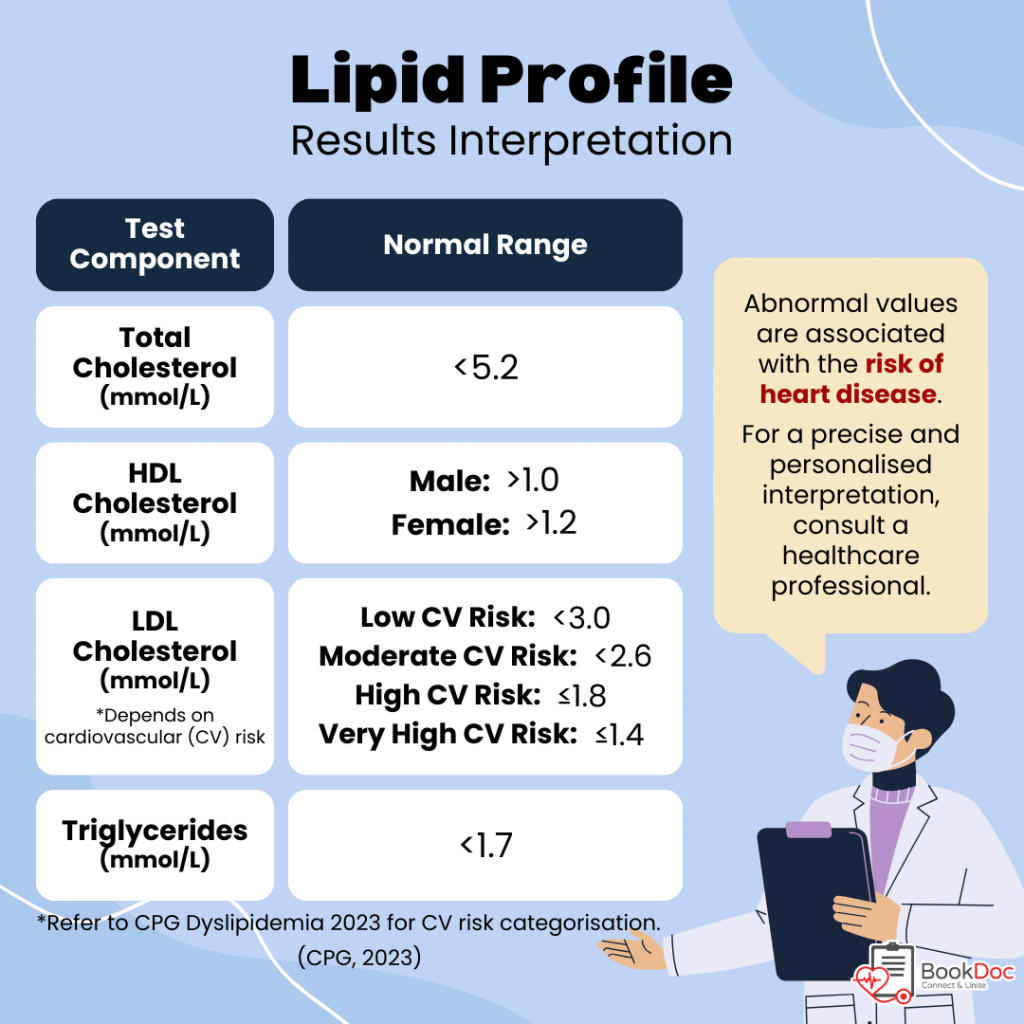
Liver Function Test
A liver function test measures the amount of specific enzymes and proteins in our blood, produced by the liver, giving an idea of how well your liver is functioning. This test includes alanine transaminase (ALT), aspartate transaminase (AST), alkaline phosphatase (ALP), total protein, albumin, and total bilirubin.
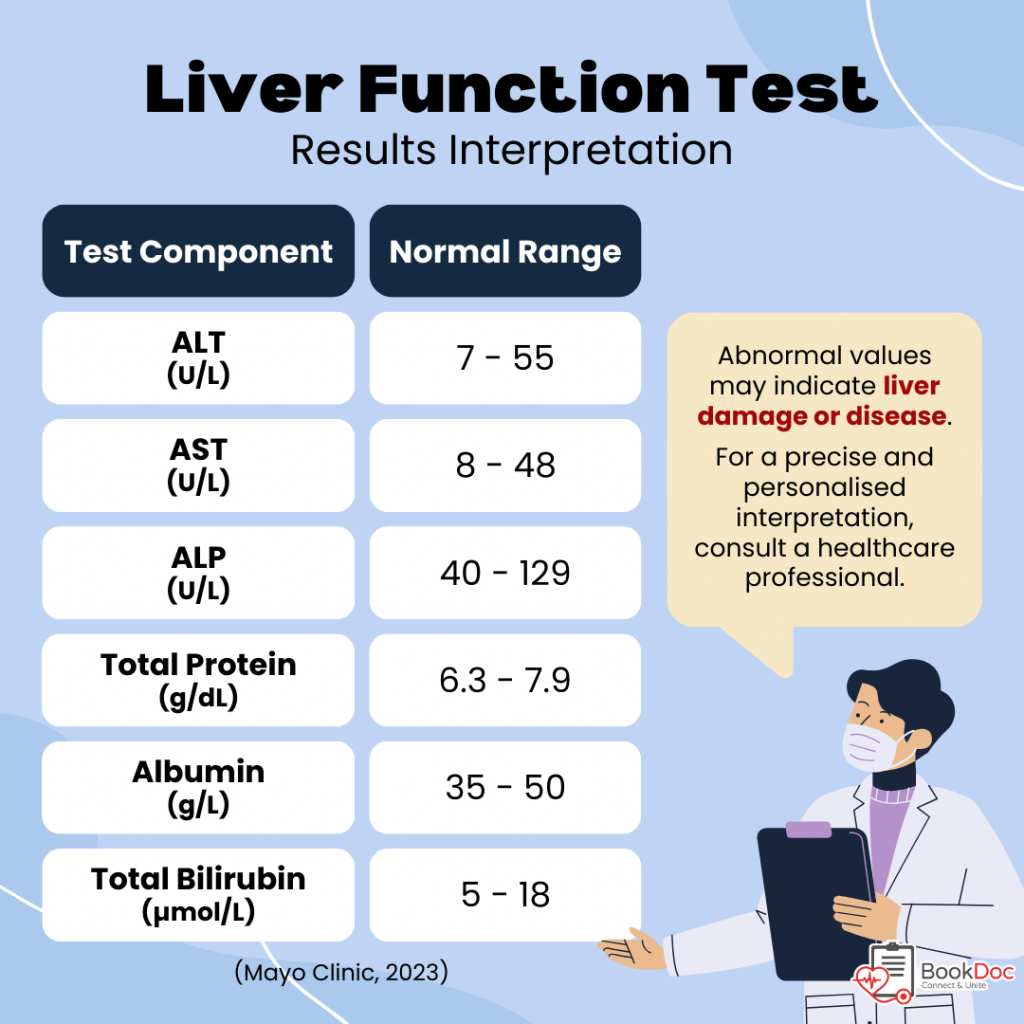
Renal Function Test
A renal function test shows how well your kidneys are working to clear waste products from your body. This test usually includes estimated glomerular filtration rate (eGFR) and serum creatinine.
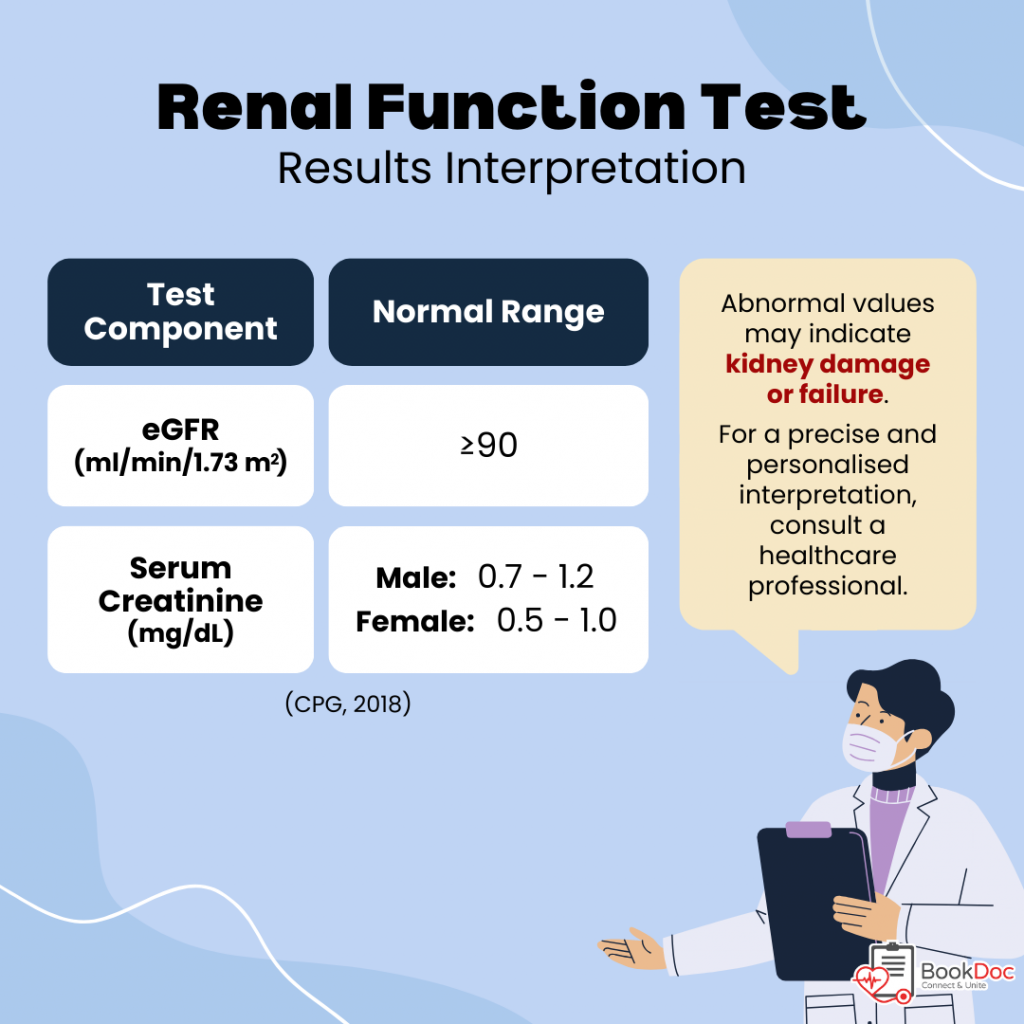
Complete Blood Count
A complete blood count checks for various conditions that may include anaemia, infection and inflammation, and blood disorders. This test includes red blood cells, white blood cells, haemoglobin, haematocrit, and platelets. The table below shows the normal ranges as well as the interpretation of the abnormal levels for each component.
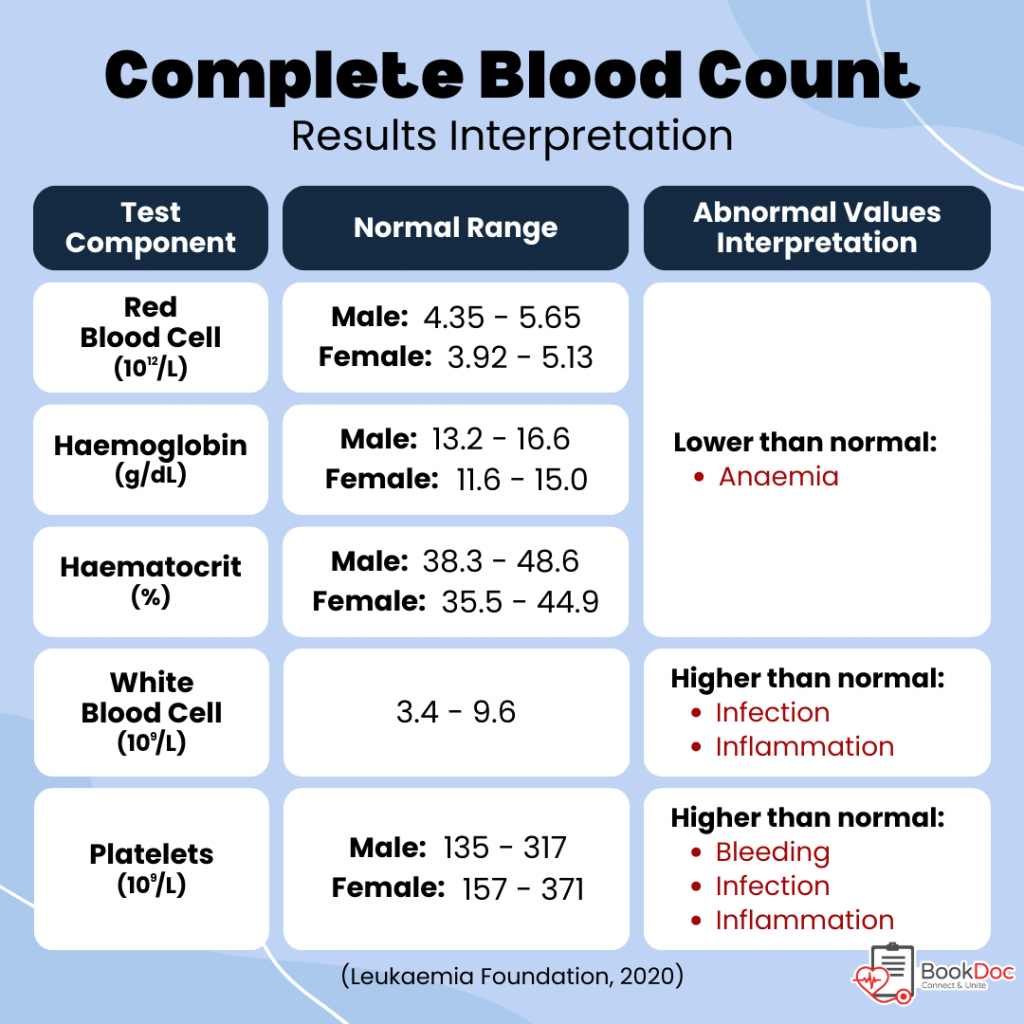
To sum up, the information presented in this article serves as a foundational guide to understanding health screening results. It is crucial to recognise that individual health is complex, and various factors can influence specific parameters. For a more accurate assessment of your current health status, it is recommended to consult a healthcare professional.
Huey Huey, Dietetics Intern
References:
- WHO/IASO/IOTF. The Asia-Pacific perspective: redefining obesity and its treatment. Health Communications Australia; Melbourne: 2000.
- https://www.who.int/europe/news-room/fact-sheets/item/a-healthy-lifestyle—who-recommendations
- Clinical Practice Guidelines: Management of Hypertension, Fifth Edition. Putrajaya: Ministry of Health, Malaysia, 2018.
- Clinical Practice Guidelines: Management of Type 2 Diabetes Mellitus, Sixth Edition. Putrajaya: Ministry of Health, Malaysia, 2020.
- Clinical Practice Guidelines: Management of Dyslipidemia, Sixth Edition. Putrajaya: Ministry of Health, Malaysia, 2023.
- https://www.mayoclinic.org/tests-procedures/liver-function-tests/about/pac-20394595
- Clinical Practice Guidelines: Management of Chronic Kidney Disease, Second Edition. Putrajaya: Ministry of Health, Malaysia, 2018.
- https://www.medicalnewstoday.com/articles/322380
- https://www.leukaemia.org.au/blood-cancer/understanding-your-blood/blood-tests/
- https://labtestsonline.org.uk/tests/full-blood-count-fbc













